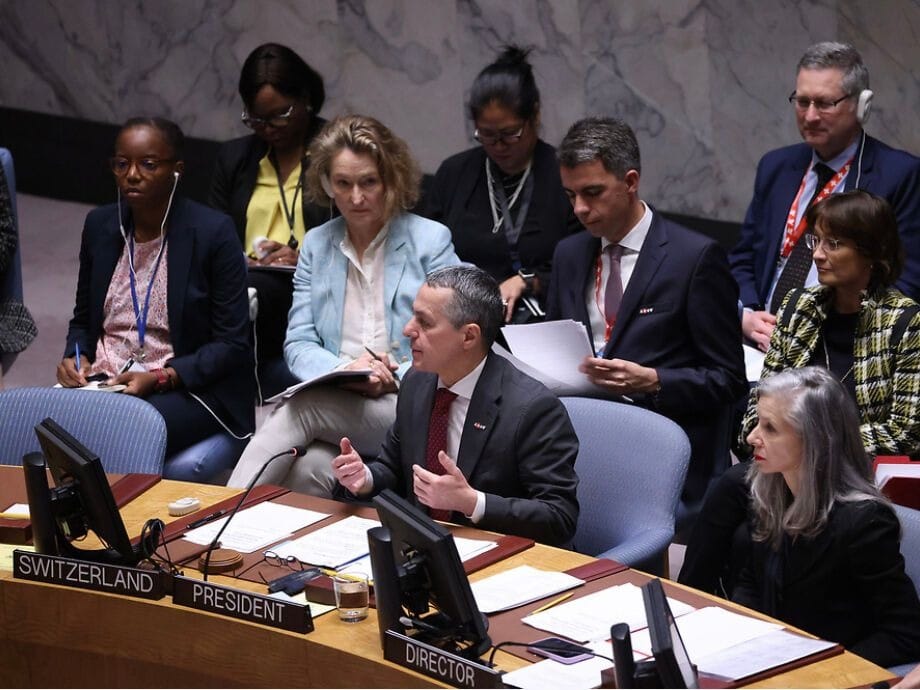Switzerland's first-ever presidency of the U.N. Security Council couldn't come at a more striking time as the nation's centuries-old policy of neutrality is challenged by Russia's war in Ukraine and shifting European alliances.
Swiss Foreign Minister Ignazio Cassis chaired the Alpine nation's first flagship event at the 15-nation council on Wednesday, calling on nations to strengthen the council's confidence-building approaches and instruments for sustainable peace.
Some of the focus turned to the work of a relatively new Swiss independent foundation, the Geneva Science and Diplomacy Anticipator, or GESDA, that operates on a mission to "use the future to build the present."








